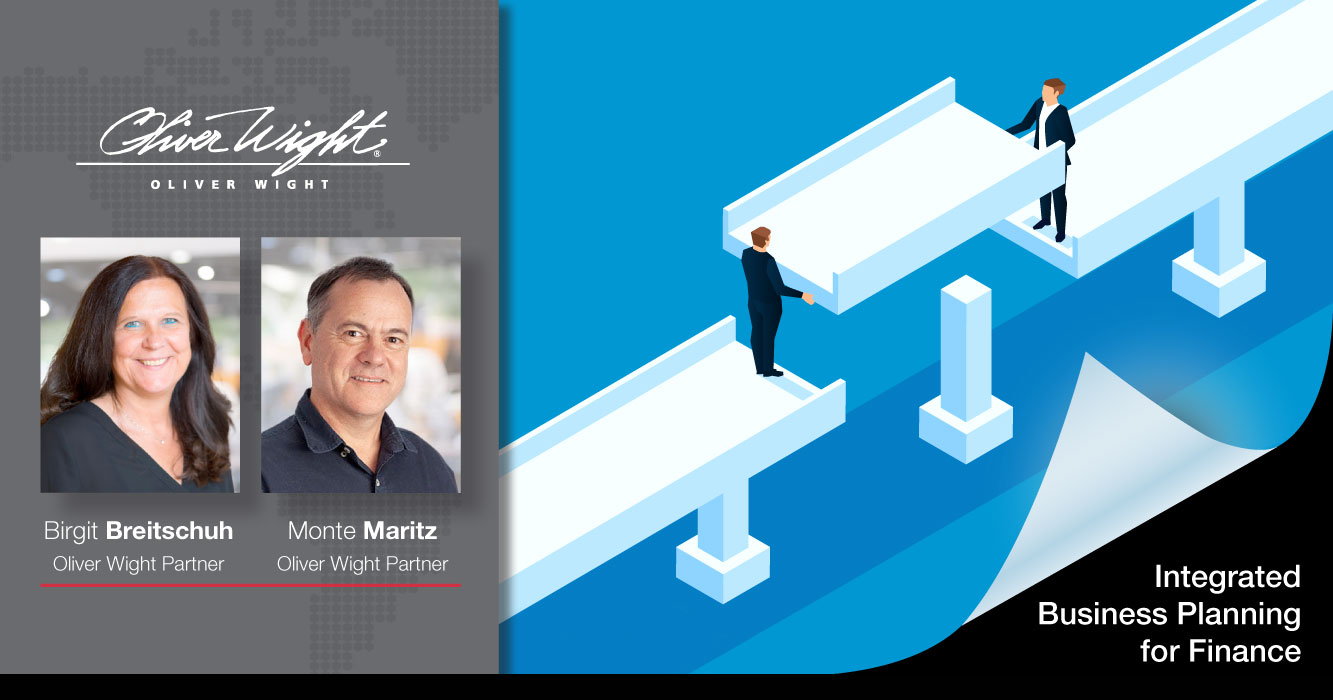Why waste your time second guessing when one plan delivers more?
11 Sep 2025
Blog

This blog covers:
- Why traditional governance-led finance models are no longer enough
- How IBP empowers finance teams to drive agility and unlock value
- Why finance must evolve from oversight to enablement in 2025 and beyond
- Details of our Integrated Business Planning for Finance online workshop taking place on 24th September 2025
For decades, finance’s role has been grounded in oversight: ensuring compliance, managing budgets, reporting performance. But as business complexity grows and change accelerates, this governance model is no longer enough. To remain relevant – and valuable – finance must evolve into a function that enables agility, drives performance, and unlocks opportunity.
This shift from governance to enablement is central to how leading organisations now design their Integrated Business Planning (IBP) processes. It requires finance leaders to think differently about their purpose and to reshape their function’s identity accordingly.
From watchdog to strategic enabler
Traditional finance models were built for control. The finance team set targets, tracked variances, and held others accountable when numbers didn’t add up. While this oversight was essential, it often positioned finance as a gatekeeper – a function that said “no” more often than “how”.
Modern IBP processes call for a different role. In high-performing businesses, finance doesn’t just monitor results – it helps shape them. Finance is embedded in the planning cycle, working side by side with commercial and operational teams to anticipate challenges, identify trade-offs, and co-create actionable plans.
This role demands more than technical accuracy. It requires curiosity, collaboration, and a mindset shift from enforcing discipline to enabling performance.
What enablement looks like in practice
In our work with finance leaders across sectors, we’ve seen this transformation firsthand. In one global industrial company, finance leads no longer attend IBP meetings to check numbers. They arrive to offer insight, challenge assumptions, and support decision-making. As one CFO described it: “We’ve stopped measuring the gap and started helping to close it.”
Enablement doesn’t mean abandoning governance. On the contrary, the strongest finance functions are those that maintain financial integrity while ensuring plans are robust and credible. But they also go further – helping the business succeed by building plans people can believe in and execute confidently.
Through IBP, this enablement role becomes systematic. Finance is present at every key planning stage – from portfolio reviews to demand planning to reconciliation – ensuring financial thinking is baked into business decisions, not layered on afterwards.
Why now?
In today’s world, the need for finance to enable rather than just govern has never been more urgent. Businesses face increased volatility, evolving customer expectations, ESG pressures, and talent shortages. Strategic agility is essential – and finance is uniquely placed to support it.
When finance professionals move from simply reporting on outcomes to helping shape them, the result is a more aligned, responsive and effective organisation. It’s also a more fulfilling role – one that attracts high-calibre talent and positions finance as a core driver of business success.
From control to contribution
The journey from governance to enablement begins with a simple question: what value does finance want to bring to the business?
If the answer includes helping teams make better decisions, providing clarity in complexity, and enabling the business to act with confidence – then IBP is your platform to make that shift a reality.
Join us on 24th September 2025 for our Integrated Business Planning for Finance online workshop and learn how to evolve the finance function from governance to enablement. Find out more and secure your place today.
Author(s)
-

-
